- News
- Reviews
- Bikes
- Accessories
- Accessories - misc
- Computer mounts
- Bags
- Bar ends
- Bike bags & cases
- Bottle cages
- Bottles
- Cameras
- Car racks
- Child seats
- Computers
- Glasses
- GPS units
- Helmets
- Lights - front
- Lights - rear
- Lights - sets
- Locks
- Mirrors
- Mudguards
- Racks
- Pumps & CO2 inflators
- Puncture kits
- Reflectives
- Smart watches
- Stands and racks
- Trailers
- Clothing
- Components
- Bar tape & grips
- Bottom brackets
- Brake & gear cables
- Brake & STI levers
- Brake pads & spares
- Brakes
- Cassettes & freewheels
- Chains
- Chainsets & chainrings
- Derailleurs - front
- Derailleurs - rear
- Forks
- Gear levers & shifters
- Groupsets
- Handlebars & extensions
- Headsets
- Hubs
- Inner tubes
- Pedals
- Quick releases & skewers
- Saddles
- Seatposts
- Stems
- Wheels
- Tyres
- Health, fitness and nutrition
- Tools and workshop
- Miscellaneous
- Buyers Guides
- Features
- Forum
- Recommends
- Podcast
review
£349.99
VERDICT:
Great value proper smart trainer that's a good option for online riding
Weight:
9,850g
Contact:
At road.cc every product is thoroughly tested for as long as it takes to get a proper insight into how well it works. Our reviewers are experienced cyclists that we trust to be objective. While we strive to ensure that opinions expressed are backed up by facts, reviews are by their nature an informed opinion, not a definitive verdict. We don't intentionally try to break anything (except locks) but we do try to look for weak points in any design. The overall score is not just an average of the other scores: it reflects both a product's function and value – with value determined by how a product compares with items of similar spec, quality, and price.
What the road.cc scores meanGood scores are more common than bad, because fortunately good products are more common than bad.
- Exceptional
- Excellent
- Very Good
- Good
- Quite good
- Average
- Not so good
- Poor
- Bad
- Appalling
The Bkool Smart Go is one of the cheapest proper smart trainers you can buy. And it puts in a very decent performance, provided that you're more interested in the online riding experience than super-accurate measurement of your power. As a way into the full experience of Zwift, it's pretty easy to recommend.
- Pros: Simple to set up, decent ride feel, works well with Zwift as well as Bkool's own app
- Cons: Power measurement is a bit variable, not the most stable
Setup
Setup of the Smart Go is pretty straightforward. The rear quick release (a steel one is supplied) fits into the main frame and then the rear wheel simply rests on the roller, with your bodyweight making the connection rather than any kind of screw mechanism. It's simple enough, and it's the same sort of system that Bkool uses on its more expensive Pro 2 trainer.
> Find your nearest dealer here
If you're worried that the rear wheel might lose contact with the roller if you're out of the saddle, then don't be: I haven't had any issues during testing. The trainer automatically adjusts to different wheel sizes; you don't have to do anything more than sit on the bike.
There's no quick release mechanism to release the rear wheel, just two screw threads, so it's a bit more of a chore to remove a bike, but it's not that difficult and the frame holds the bike nice and steady.
Two extendable feet give the Smart Go a bigger footprint for more stability in sprint efforts, and there's a front wheel riser supplied to keep your bike at the right angle. It's not a heavy trainer at under 10kg, but it feels reasonably solid; you have to pay a bit more attention in the sprint than you would with something a bit heavier.
The Smart Go is fairly quiet in use, and the noise it emits is pretty inoffensive too, as trainer noises go. You're unlikely to get too many complaints from the neighbours, although it does start to whine a bit if you really crank it up.
Power measurement
One of the main draws of a smart trainer is that it'll transmit power data, which online apps such as Zwift, TrainerRoad and Bkool's own training app use to move you through the virtual world. Given that the Bkool Smart Go, at £350, is less expensive than pretty much any third party power meter you can fit to your bike (any power meter that works, anyway), it'd be a fairly big ask for it to repeatedly and accurately measure your power. And I've generally found that while the trends are certainly right, the numbers aren't necessarily bang on.
Comparison 1: Amalfi Coast
This is a ride along the picturesque Amalfi coast, using a video course on Bkool's own app, which allows you to input your weight and other metrics for a more accurate power reading. The weight data is transmitted to the trainer which feeds it into its algorithm to spit out your estimated power. The pink line is my Garmin Vector 2 pedals (freshly calibrated) and the blue line is the trainer. I deliberately used the trainer from cold: as you can see, it's reading very high until it warms up. Things even out after about 10 minutes, which perhaps not coincidentally is the amount of warm-up time Bkool recommends before a ride.
After that the pink line and the blue line swap places along the way, with either one reading up to about 10% higher than the other. The net result of this is that the average power is about the same over the course of the ride (after the warming-up bit). But why do the lines swap like they do?
The most telling part of the plot is this bit, on the flat run in to the end. Here I'm deliberately exaggerating my movement on the bike, standing up out of the saddle right over the front of the bike and then sitting up with my hands off the bar so that all the weight's on the back wheel. And it shows that it's possible to affect the power reading of the Smart Go based on where your bodyweight is.
When you're sitting back on the bike you're putting more of your bodyweight on the rear wheel, creating more resistance, and it's harder to turn the wheel. When you stand up and move your weight to the front of the bike there's less resistance, and it's easier to spin. The Bkool doesn't know that, though, and so the power reading fluctuates. Weight back the trainer reports low, weight forward it reads high. When your weight is in the middle it's about right, and overall it's about right too. If you mostly stay seated on the bike when training indoors – and most of us do – it'll be fairly close. If you're looking to map tiny changes in your power, though, those will probably be lost in the noise.
Comparison 2: That London
Here's a plot of 10 minutes of riding round London on Zwift, with the Smart Go already warmed up. The pink line is my Garmin Vector 2 pedals (freshly calibrated) and the blue line is the trainer.
You can see that in terms of the shape of the graph they track each other pretty well, but for the most part the pink line is above the blue one: for me, the Bkool was under-reporting power most of the time. Depending on what you're doing on the trainer, the gap between the lines is a different size, and on occasion – when power is above about 450W – the Bkool overtakes the pedals and over-reports.
In my general workout power band, between 200W and 300W, the Bkool was generally about 10% down on power in Zwift. That doesn't sound like a lot, but the difference between me keeping up 280W or thereabouts to stay in a 3.0W/kg ride on Zwift, and putting out 310W so the Bkool thinks I'm doing 280W? Well, one's attainable for me. The other, not so much. Why is the power further out in this instance? It's difficult to know for sure, it might be the way Zwift is communicating rider weight to the trainer, or something else.
Now, if you're only using one online app and you're not benchmarking your power against another more accurate device then maybe it's a moot point: if you can get repeatable numbers then you can track your fitness by seeing if the numbers go up and down, and I've found the Smart Go does give pretty repeatable numbers. But it's worth knowing when you're racing your similarly-fit mate online on his fancy Wahoo Kickr or whatever, and he's riding away from you on the climbs. That could be why. Or he might just be better than you. But look! I gave you an excuse.
Controllable resistance
The Smart Go has both Bluetooth and ANT+ connectivity built in. The trainer comes bundled with an ANT+ USB dongle for connecting the trainer to your laptop: the ANT+ FE-C connection was the one that worked the best for me, using a laptop to run various training apps. It's worth knowing that if you want to use this trainer in ANT+ configuration in third party apps such as Zwift and TrainerRoad, you'll first need to change it over to ANT+ in Bkool's own training app.
Resistance changes are smooth and pretty quick: not as rapid as some more expensive trainers but pretty good nonetheless. The Smart Go is rated up to 800W of resistance. I've had it reporting over 1,000W but it overestimates your power up at the top end, so 800W is probably about right as a maximum. It's not quite enough resistance to stay on top of your biggest gear if you're really going for it in a sprint effort, but it's fine for pretty much anything else, and there's plenty enough resistance for chugging up climbs in Bkool's app, or Zwift, or running through intervals on TrainerRoad.
Bkool app: good for video stuff and more
Bkool's app is a subscription model in the same manner as most of the other options. You get three months free, and there's a lot in it. If you're subscribed and you don't use the trainer in a month then that month will roll over, up to a maximum of three. That's a nice touch, and useful for summer.
Video routes are one of the big draws: you can ride up Alpe d'Huez or the Col du Galibier without leaving your shed. The videos are generally pretty good; they vary a bit in quality, and also in the way they're filmed, but it is an immersive experience and there's definitely something about doing a climb in video that adds to the realism. If the videos are filmed from a bike they work better than the ones filmed from a motorbike: those sometimes look a bit like they're happening in slow motion and you lean into the corners going uphill, which is weird. You can make your own video sessions using an action camera, or make a virtual route by uploading a GPX file.
That's not the extent of the app, though, there's a lot in it. Other routes are available as virtual rides or displayed as maps. The weather conditions can change, too, making it easier or harder to complete a route.
There are lots of workouts, too. You can do structured training in the manner of TrainerRoad, and there are also video workouts that are more akin to doing a spin class. On top of that there's a velodrome section, which I don't think is available on any other app. You can participate in multiplayer track disciplines like Keirin and elimination races, or test yourself against the kilo or the hour record.
> Buyer's Guide: 15 of the best turbo trainers and rollers
If you're going to spend your £8/month on one or other of the online platforms then there's plenty in the Bkool app to keep you occupied. The user base is a lot smaller than Zwift, so if you're after multiplayer fun then Zwift is still your best bet. And if you're just going to hurt yourself doing intervals then TrainerRoad is very focused on that, and does it very well. But the Bkool app has plenty enough to keep most people occupied for the three months they'll get for free, whereupon you can have a think about where you want to spend your money.
The app interface is best described as 'clunky', probably. There's a lot to get around, and it's not always obvious where to go for what you want. You get to learn where stuff is after a while, but it could do with a bit of a revamp.
Overall: a solid performance from a budget trainer
Three hundred and fifty quid didn't used to be budget money for an indoor trainer, until everyone started connecting them to the internet. But that's the world we live in now, and I for one embrace it: indoor training is a lot more fun these days. The Bkool Smart Go brings 'proper' smart training – with native power measurement and controllable resistance – down to a new price point, and for the money it's very good.
Okay, the power measurement isn't spot on, and the maximum resistance is a fair bit below what you'll get if you spend more, but the overall experience of using the trainer is very good. It's easy to set up, with good, progressive resistance that changes quickly and syncs up well with both Bkool's own and third party apps. If you're keen to get into the smart trainer environment and you don't have the best part of a grand to throw at it, this is a good place to start.
Verdict
The cheapest proper smart trainer is a very good value option for online riding
road.cc test report
Make and model: Bkool Smart Go Trainer
Size tested: Fits wheels 20-29in; up to 1200W
Tell us what the product is for, and who it's aimed at. What do the manufacturers say about it? How does that compare to your own feelings about it?
Bkool says:
"The most realistic workout on a trainer
Bkool Smart Go is controlled by the simulator
Unbeatable price"
Tell us some more about the technical aspects of the product?
And lists the following:
Powerful
Can reach up to 800 W.
Simulates slopes of up to 8%.
Super stable
Telescoping legs offer greater stability when riding.
Silent
Noise level: 75 dB at 30 kph.
A conversation ranges from 40 to 80 dB
Inertia
The only trainer that simulates inertia.
Smart adjustments on gradients.
Wireless
Wireless, can connect to external Bluetooth and ANT+ devices
Compact & Light
Folding stand. 9.85 kg.
Disassembly into two pieces.
Plug & Play
Easy to set up, doesn't need calibration.
The wheel adjusts to the roller.
Universal
Compatible with all wheel sizes (from 20" to 29").
Rate the product for quality of construction:
7/10
Rate the product for performance:
8/10
Rate the product for durability:
8/10
Rate the product for weight (if applicable)
6/10
Rate the product for value:
8/10
Tell us how the product performed overall when used for its designed purpose
Given the price, it does very well.
Tell us what you particularly liked about the product
Decent ride feel, good resistance changes, easy to use.
Tell us what you particularly disliked about the product
Power measurement a bit variable, app feels a bit clunky at times.
Did you enjoy using the product? Yes
Would you consider buying the product? Yes
Would you recommend the product to a friend? Yes
Use this box to explain your score
An RRP of £349.99 for a proper smart trainer is impressive, and given the price the Smart Go does a decent enough job of estimating power too.
About the tester
Age: 43
I usually ride: whatever I'm testing... My best bike is: Kinesis Tripster ATR, Kinesis Aithein
I've been riding for: Over 20 years I ride: Every day I would class myself as: Experienced
I regularly do the following types of riding: road racing, time trialling, cyclo-cross, commuting, club rides, sportives, general fitness riding, fixed/singlespeed, mountain biking, Mountain Bike Bog Snorkelling, track
Dave is a founding father of road.cc, having previously worked on Cycling Plus and What Mountain Bike magazines back in the day. He also writes about e-bikes for our sister publication ebiketips. He's won three mountain bike bog snorkelling World Championships, and races at the back of the third cats.
Latest Comments
- Geordiepeddeler 5 hours 13 min ago
Cycling infrastructure does not force drivers to break the law, drivers are the reason they break the law, no one else.
- chrisonabike 5 hours 25 min ago
Ah but taking pictures of things to defy the man (avoid a fine) is righteous. Taking pictures of people to grass on them to the cops (perhaps...
- ktache 7 hours 15 min ago
But getting paid for it is the very definition of professional....
- ktache 7 hours 24 min ago
Never had a Shimano QR fail on me. They just work. And the top end ones look good too....
- Backladder 8 hours 10 min ago
If you're only looking at the guy in front of you then you're going to crash whatever brakes you have, you need to look beyond them to anticipate...
- jaysa 8 hours 36 min ago
As a woman, this works great for me! My chain broke once, and a kind guy stopped with a chain breaker and sorted it all out for me. We stopped at a...
- andystow 9 hours 27 min ago
Same. I also have gone through a bunch of their tyres, and only the extralight disappointed (torn sidewall) but the standards are fantastic....
- chrisonabike 11 hours 24 min ago
Indeed - but it's no more inconsistent than our current road design - very often UK high streets are "for shopping" and also a busy through route....
- mike the bike 12 hours 55 min ago
If you ask the world's leading economic commentators how many people have been rescued from abject poverty by capitalism the average answer would...























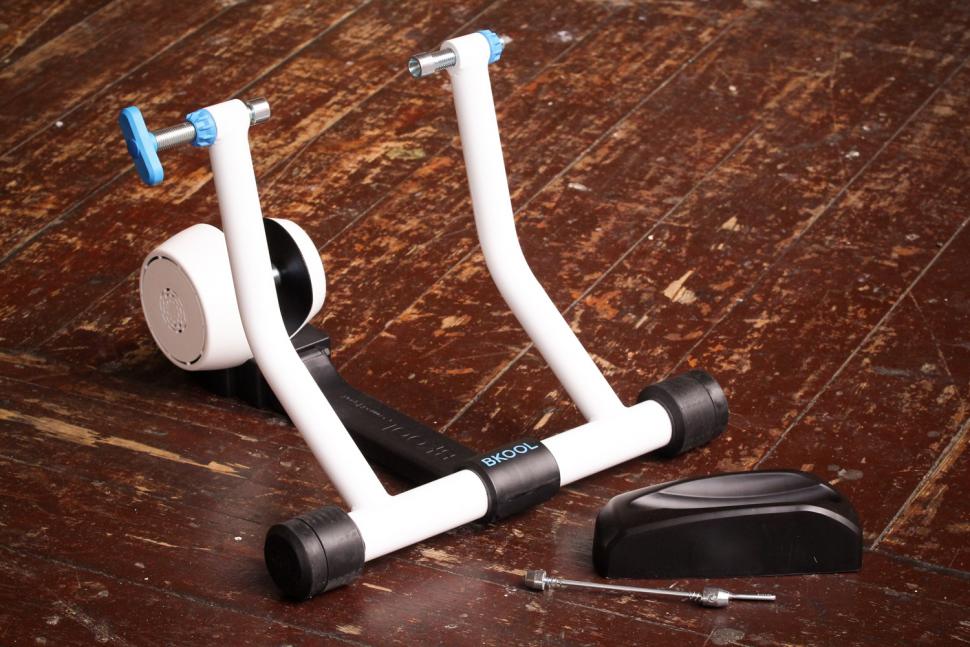
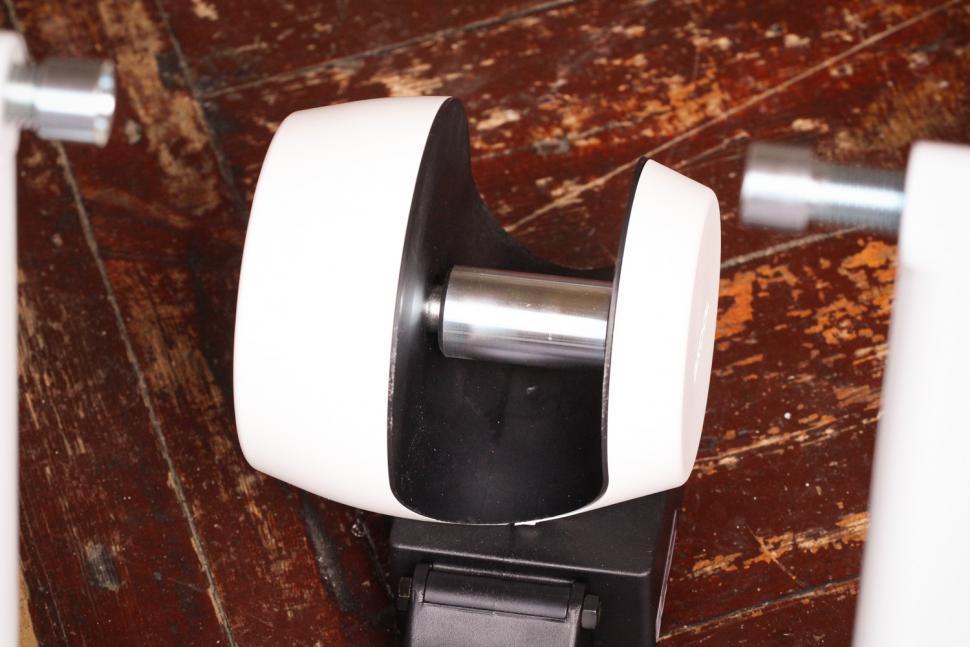

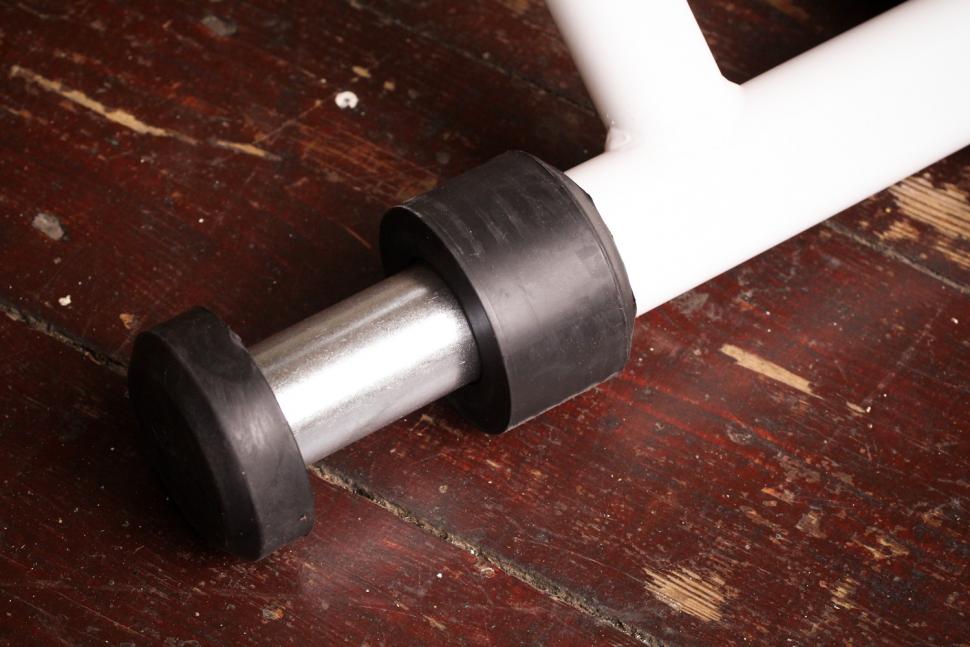

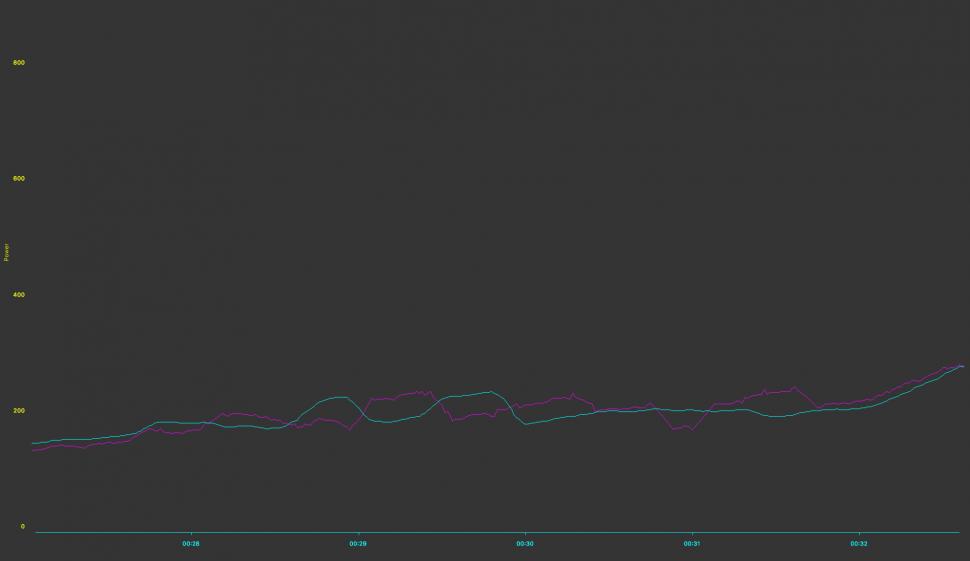
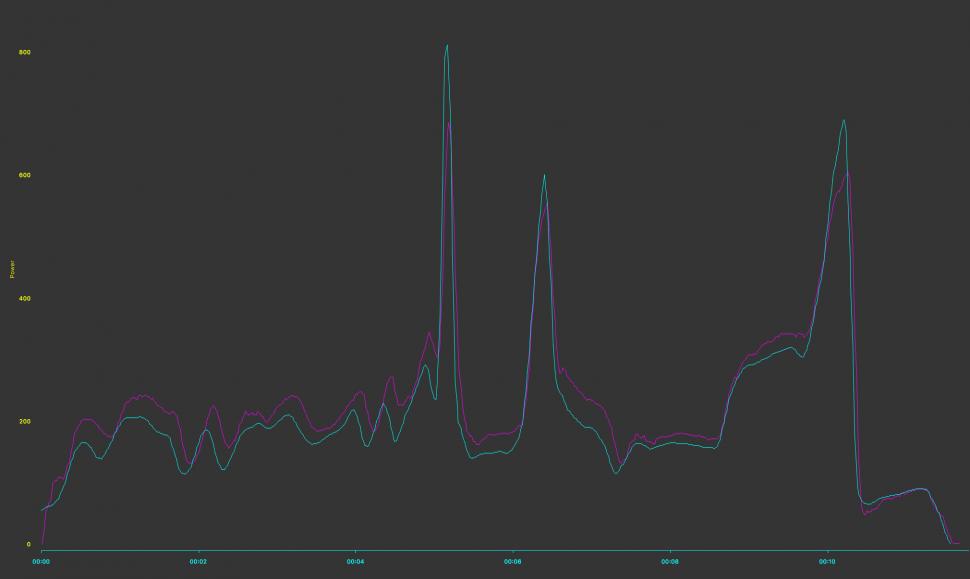
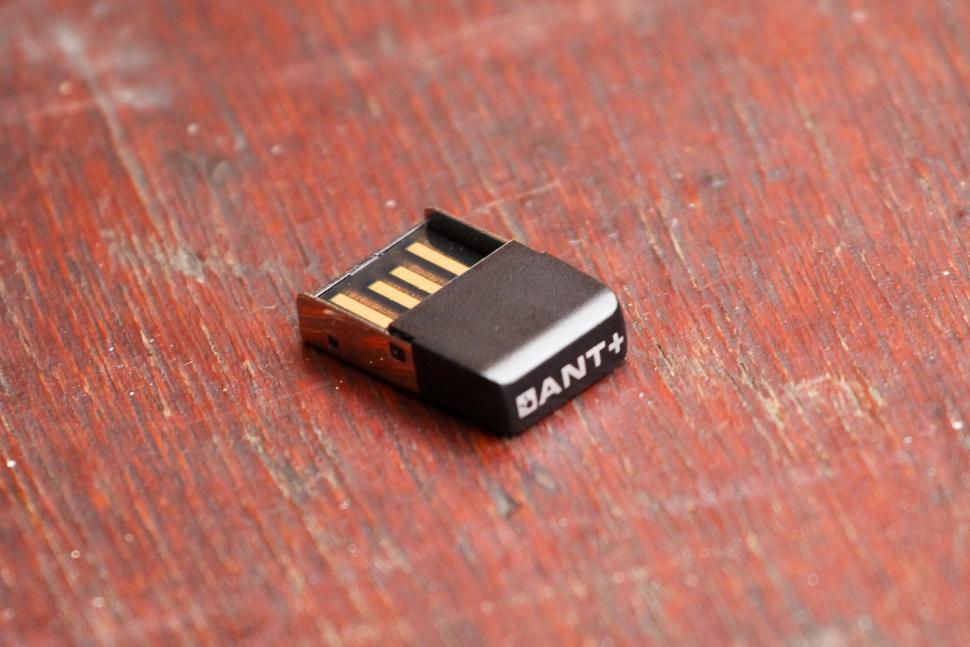
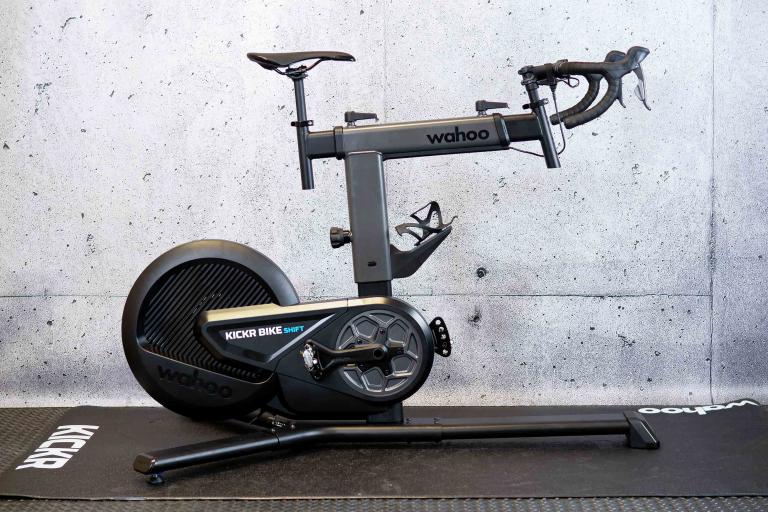
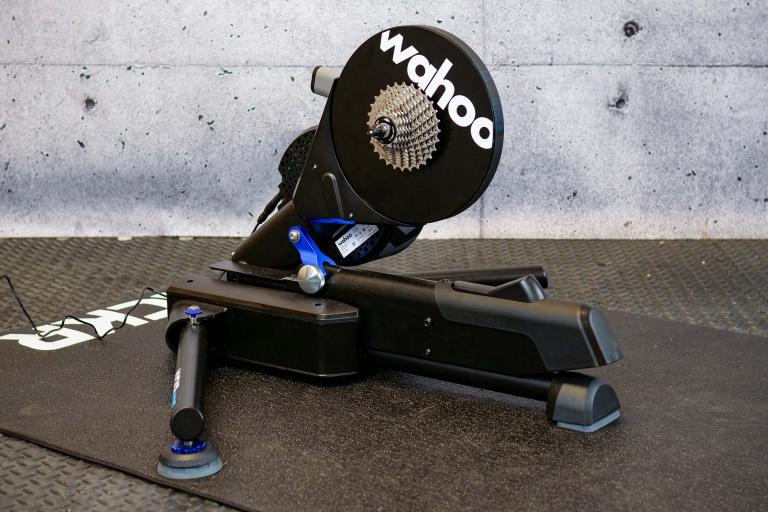
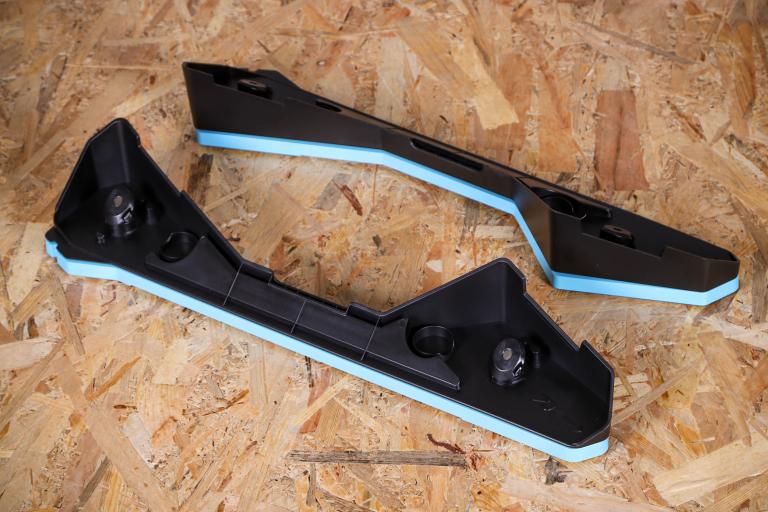
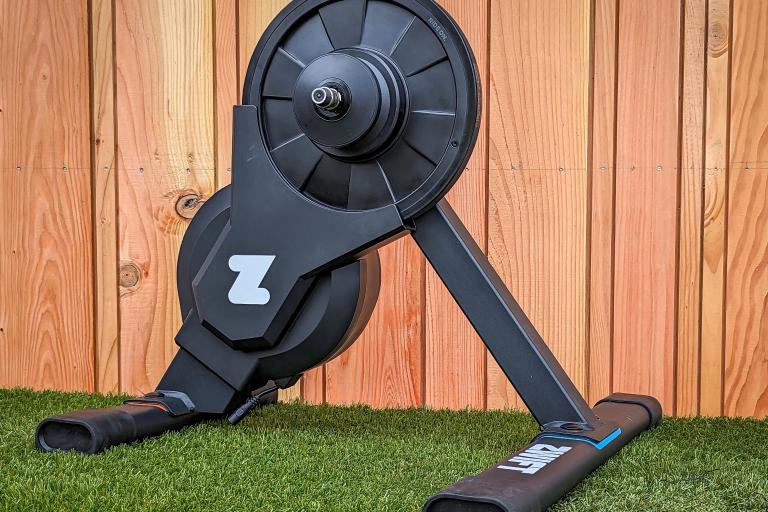
Add new comment
18 comments
Does anyone have a solution to the trainer turning up the resistance to maximum when you start a workout and doesn't change? I have tried unpairing/repairing and updating the software etc. but I cannot seem to do any workout/session without the trainer defaulting to maximum resistance.
On the flat/downhill I am in the 'easiest' gear on the bike and struggling to turn the pedals (ie it's like a 15% incline!).
Any suggestions would be greatly appreciated!
I had this problem (after the first 2 weeks during which the trainer worked fine), unfortunately I wasn't able to get it resolved with Bkool support so I ended up returning the trainer for a refund. I hope you have better luck!
I have the BKool Smart Pro 2. I like the design, and the unit feels sturdy unless one hammers out of the saddle. I've found that the power output is much lower than expected when compared to a power meter -- almost 100 W difference. The power readings make it nearly impossible to participate in group activities whether it's on BKool's simulator, or others such as Zwift. The other issue I have is that for customers in North America (or outside of the EU time zones) getting technical support is difficult at best. In trying to sort out various software issues and the aforementioned power readings, response time is on average 3 days -- a little slow when one wants to use the trainer/software.
The lack of user-friendly instructions and trouble-shooting guides makes it difficult to recommend. There are a few UI issues with the simulator software...not the focus of this article...which makes the use of BKool's software less attractive than other alternatives. Others have mentioned that connecting to Zwift can be dicey.
I hope that BKool can sort out some of these issues, especially establishing support resources outside of its home region.
I’m surprised you haven’t mentioned that it’s not possible to use it as a controllable trainer on Zwift. You can only use it as a power source on iOS and it doesn’t work on 32 bit windows. Such a let down.
https://www.sigmasport.co.uk/item/BKOOL/Smart-Go-Trainer/FSUJ
anyway, i have one, used it a few times. It does what i want it to do. As for accuracy, as long as it is consistent i am not overly fussed.
I am guessing here, the zwift issue is if you are racing, if your doing a workout or a ride then not really an issue?
yeah, only really an issue if you're racing. if you just want to ride round or do social rides or group workouts, it's neither here nor there if the displayed wattage is exactly what you're putting out. it's more about repeatability.
Isn't it a training tool rather than a game though, I'd rather set up as it should be and know I'm better 3 months after I started...
Why would anyone cheat?
People cheat in every computer game!
I've updated the review to say it's among the cheapest, rather than the cheapest. the Elite Qubo is about £25 cheaper too.
If power reads 10% lower than it should if you put your weight in as 5% higher would that bring the power figure more in line? Or 5% lower weight or some other bodge to get it to read more in line with correct power?
that's an option, but Zwift mostly works around your W/kg numbers, so if you hack your weight you affect not only the trainer reading but your W/kg
Isn’t the Tacx Flow (£250 from Halfords and often on offer) a cheaper ‘proper’ smart trainer? Algorithm power measurement and smart control from Zwift etc. Not quite as much incline simulation nor inertia but otherwise seems to fulfil the criteria?
No a 'proper' Smart trainer has built in power meter.
Power that is calculated from an algorithm has too many variables which skew the output, tyre pressure, weight upon roller(tyre driven), cheat methods to elevate power etc. I know a few who use the bkool pro, with external power meters from either crank or pedals and report much lower, but importantly consistent readings. When the likes of the bkool pro and tacx flow have a separate PM they work very well on Zwift, Trainer road etc.
In which case only the Elite Drivo, the Direto and the Technogym jobbie are 'proper' smart trainers, the Tacx Neo, Kickr 2, etc all use calculated power rather than physical strain guages.
The Kickr V1 uses a strain gauge(recently upgrade firmware to use the latest method), the later version use magnetic forces from the braking system to measure power. I dont know what the other have but I presume strain gauge or some electronic measurement. The Bkool and other just take the speed from the device add in the weight input from the rider and calculate with an algorithm the power. Measurement as opposed to calculate.
Too many variables with calculated wheel driven trainers, tyre pressure being one. Besides Bkool dont have an open F-EC protocol, they have locked it down so the likes of Zwift cannot create a power curve to help even up the trainers on their platform.
Well yes (depending on levels of proper), but I was quoting from the review. Hence the inverted commas.
In in any event, I don’t really mind so long as the results from the individual trainer are consistent, whether algorithm based or not. Good to see smart trainers dropping in price generally.
I used to use a Bkool Pro and my main trainer, a Wahoo Kickr. The Bkool would record 30-80W more than the Wahoo, which has a calibrated power meter. The Smoothing applied by the bkool calculation gives greater speed on the flats 1.5mph average.
Little tips to maximise your power output on a Bkool, pump your tyres upto 140-150psi, this is worth 50 Watts for no more effort. Also accelearating upto to a high cadence, then backing off and repeating also gives an exaggerated power reading. You can also accidentally unplug the unit because it moves whilst working hard, bkool simulator doesnt realise you're unplugged for quite while so keeps recording the last power level. A known power dope method for the Bkool.
Bkool not an idela tool if you want to take power numbers outside for training, but ok for getting a good workout.
The frame is a little unstable if you stand up. The unit will walk on a smooth surface, so needs a mat or carpet to hold it in place. Its not a terrible trainer if you know the weakness/faults.